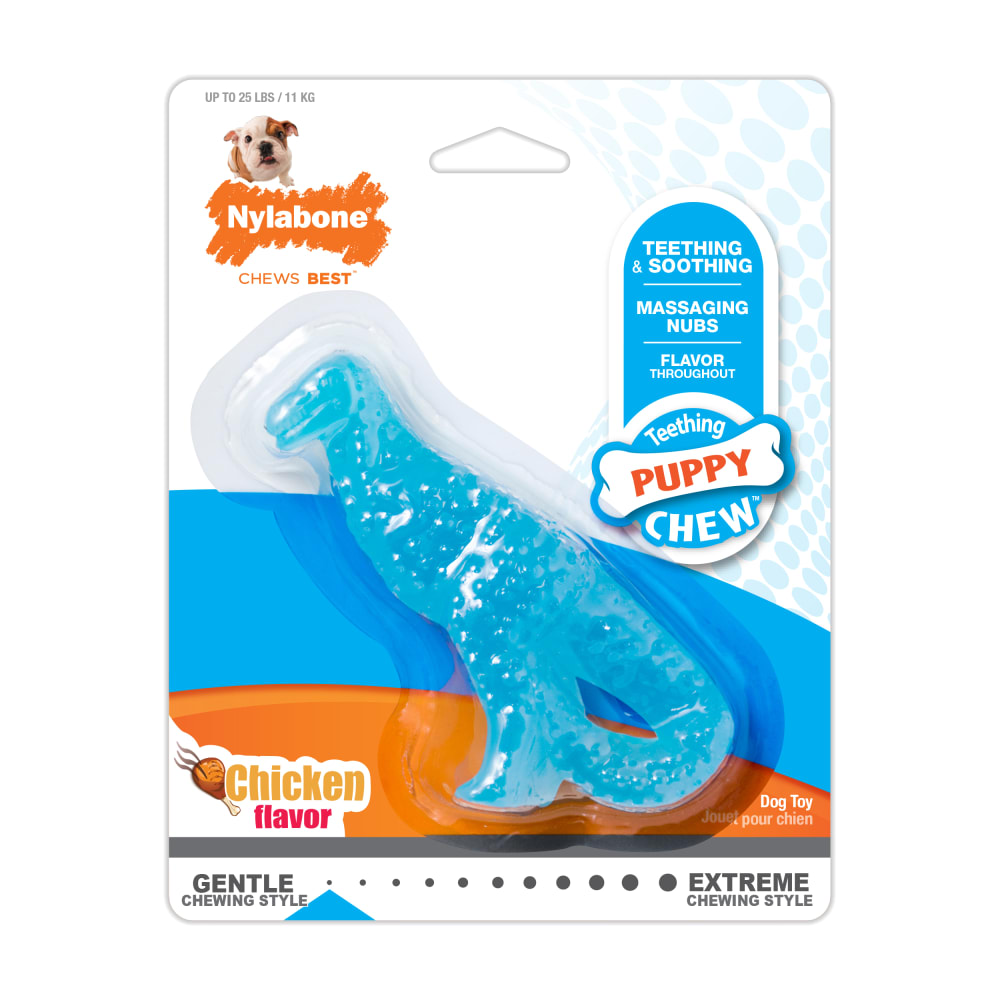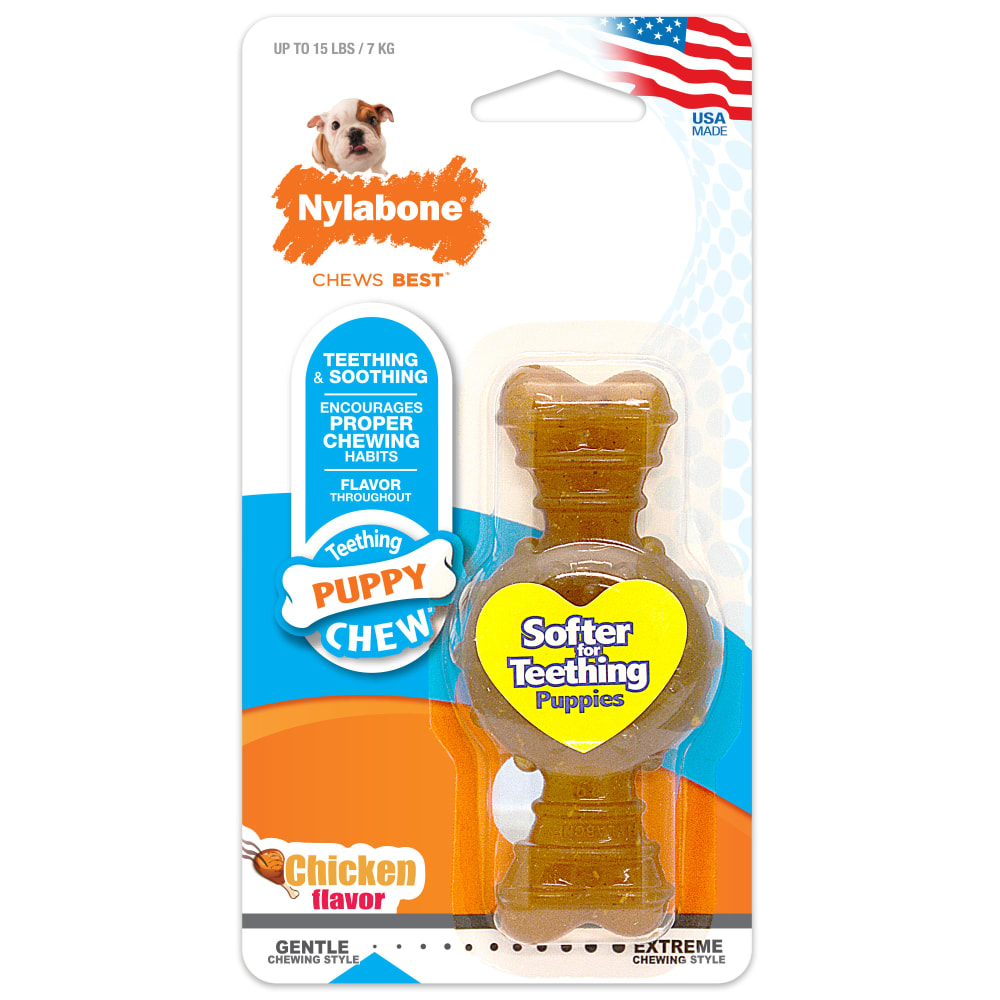Article
Puppy Development Stages: Birth to Adolescence
Aside from being packed with plenty of adorable moments, the first few months of a pup's life are full of important milestones! From getting that first baby tooth to finally mastering potty training, puppies undergo many key developments in just a short amount of time. Even as pups sleep a lot throughout the day, their bodies continue to develop at an incredible rate.
Every dog goes through a series of mental, physical, and emotional changes, which are organized into several puppy development stages. These meaningful stages often begin before you meet your new best friend and last until they enter their early adult years. Understanding each stage will be helpful as you train and socialize your puppy, so keep them in mind as your dog grows.
Neonatal Stage (Birth to 2 Weeks)
Unlike children, puppies are born without their sense of sight or sound. During their first few weeks, they rely entirely on taste, touch, and smell—their strongest sense—to interact with their mother. Speaking of Mom, she will be the most important figure in her pups' lives in the early going. Until her puppies develop their remaining senses, learn how to walk, and know how to socialize, it's her job to care for her puppies in every aspect.Pups develop much more quickly than kids and become independent after just a few weeks, which explains why this puppy growth stage is so short. They really do grow up fast!
Transitional Stage (2 to 4 Weeks)

The transitional puppy development stage is another quick but big step. After about two weeks, puppies open their eyes and take their first look at the world. Around the same time, their sense of hearing begins to take shape. Puppies try to imitate Mom when they hear her bark or yelp, similar to how children utter their first words after listening to people speak.
Baby teeth also begin to come in during this stage. These temporary teeth start appearing after about three weeks, and all 28 baby teeth should emerge by the time a puppy is six weeks old, according to the Veterinary Centers of America (VCA). Pups can eat soft foods with ingredients such as chicken and sweet potato once they get their baby teeth.
Early signs of emotional and mental growth appear within the first month. As puppies take their first adorable steps after about four weeks, they become more independent and explore their surroundings with all five senses. Furry friends also start learning to control their bladder during the transitional stage, preparing them for puppy potty training!
Socialization Stage (4 to 12 Weeks)
Puppies begin to play with their littermates shortly after learning to walk. Cheerful barking and growling are common as pups interact with one another and develop their personalities. The first few weeks of the socialization stage are typically too early to welcome home a puppy, so spend this time meeting different pups and getting a true sense of their character.Once puppies enter their forever homes typically around eight weeks of age and receive their first round of vaccinations, they're ready to start socializing with their new family. This is especially important because pups feel a stronger need for companionship in this stage. They should be slowly introduced to people and other pets, though. In fact, the socialization stage is sometimes called the "fear period" because puppies may feel overwhelmed when introduced to too many new sounds, smells, places, animals, and people at once. To help your dog transition to their new homes during this time, consider products such as heartbeat pillows for puppies, which mimic the sound of a mother's beating heart and provide much-needed comfort.
Keep in mind that furry friends are more cognitively developed during this puppy growth stage and will benefit from frequent, dedicated training. The sooner puppies are taught obedience and basic dog commands, the better. Always be forgiving of mistakes and offer praise and rewards for a job well done!
Ranking Stage (3 to 6 Months)

Once puppies become more familiar with their new family members, they begin to think about where they fit in. That's where the ranking stage comes into play. It's common for pups to submit to their pet parents and other humans they interact with regularly. On the flipside, they may try to exert dominance over other small pets by staring them down or stealing their belongings. Rewarding positive, friendly behavior with treats and praise is key throughout puppyhood.
Adult teeth begin to emerge around the same time pups learn their place in the social hierarchy. Puppy teething discomfort becomes evident as dogs chew more frequently to cope with the pain. Therefore, it's important to hide electrical cords and other off-limits items your pup may try to chew. Offer chew toys to provide a safe, healthy way to satisfy natural chewing urges and help stop your puppy from nipping and biting so much. While many chew toys intended for teething pups are made of softer materials, puppies who are more powerful chewers or have permanent teeth may need more durable chew toys. Although every puppy is different, many dogs teethe until they are nine to 12 months old.
Adolescence Stage (6 to 18 Months)
Dogs are usually spayed or neutered after about six months, which is generally when they enter the adolescence stage. Pups do not usually express their best behavior during their "teenage" years, often becoming rowdier and rebelling against commands. However, it's still important to keep up with training and correct improper behavior. Adolescent dogs also need plenty of attention and social interaction to satisfy their newfound energy. Try going for an extra lap on walks or extending playtime by a few minutes each day.
When Are Dogs Fully Grown?

Depending on a variety of factors such as breed and size, puppies typically finish growing between one and two years old. In general, larger furry friends need more time to develop than smaller ones. Emotional maturation also occurs when dogs are fully grown, as pooches typically become more obedient and maintain a calmer attitude. You may even notice some of the activities your dog enjoyed as a puppy no longer capture their attention. Just like kids, dogs' tastes change as they get older.
Puppies seem to grow up in the blink of an eye. As your best friend moves through the puppy development stages, remember to savor every moment and prepare them for a happy, fulfilling adult life!
FOLLOW US!






